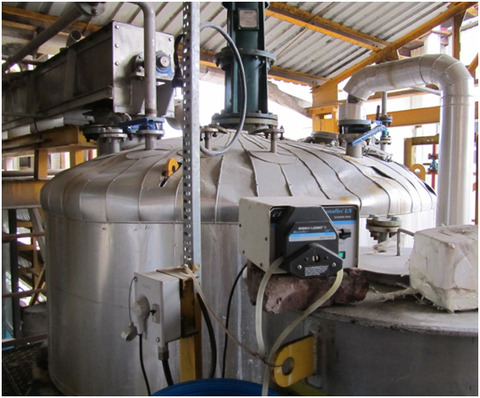
Cole-Parmer’s Masterflex has helped Saswad Mali Sugar reduce leakage and blockages in its production process.
Ethanol is a versatile alcohol that is used in fuel, beverages and thermometers. Two processes utilised to produce ethanol from grain are dry milling and wet milling.
Dry milling plants generate ethanol, carbon dioxide, and distillers’ grain, which is used as a high-protein livestock feed supplement.
Wet milling plants create these and additional valuable byproducts such as corn syrup, dextrose, and fructose, however they cost substantially more to build and operate than a dry milling plant.
One of the largest sugar manufacturers in India, Saswad Mali Sugar, use molasses, a by-product generated from their sugar production to produce ethanol.
Their dry milling site is capable of generating 846 KLPM of ethanol but they were experiencing process downtime and reduced ethanol concentrations from leakage and blockages in their enzyme dosing pumps. Saswad Mali Sugar needed a solution to reduce their losses.
They contacted Cole-Parmer.Cole-Parmer considered Saswad Mali Sugar’s ethanol production process: Debris is removed from the molasses and the molasses is coarsely ground and mixed with process water.
The pH is adjusted and alpha amylase enzymes are added to form “slurry”. The slurry is then heated and moved to liquefaction tanks.
As the alpha amylase enzymes start to break the starch down into short chain dextrins, the slurry is moved to a fermentation tank where glucoamylase enzymes are added to break the dextrins in to simple sugars.
This mixture is known as “mash”.To maximise ethanol concentration, it is critical that the enzymes are accurately dosed. Enzymes are added to the tank 24 hours a day, requiring a precise volume delivered at very low rates.
The flow needs to be varied based upon operating conditions.Yeast is added to convert the sugar to ethanol and carbon dioxide. The mash is then allowed to ferment for several days, resulting in a mixture that contains about 15% ethanol as well as the solids from the grain and yeast.
The mash is then pumped through a distillation system to separate the ethanol off. Once it leaves the distillation columns, the ethanol is about 95% by volume (190-proof).Saswad Mali Sugar Factory was initially using diaphragm metering pumps to deliver the glucoamylase enzymes but encountered leakage and blockages in the metering pump system.
Mr. Rahul Tilekar, Saswad Mali Sugar, was dissatisfied with their performance. “We started experiencing leakage and blockage in the system within just two months of installation,” he said.Cole-Parmer stepped in and offered fluid handling expertise that proved invaluable.
Cole-Parmer’s Application Specialist recommended a Masterflex peristaltic pump system and pharmed BPT thermoplastic elastomer tubing.
The new pump system improved the process exponentially, ensuring accurate and repeatable flow whilst eliminating check and ball valves that were causing the system to block.





